33 Nights / 34 Days
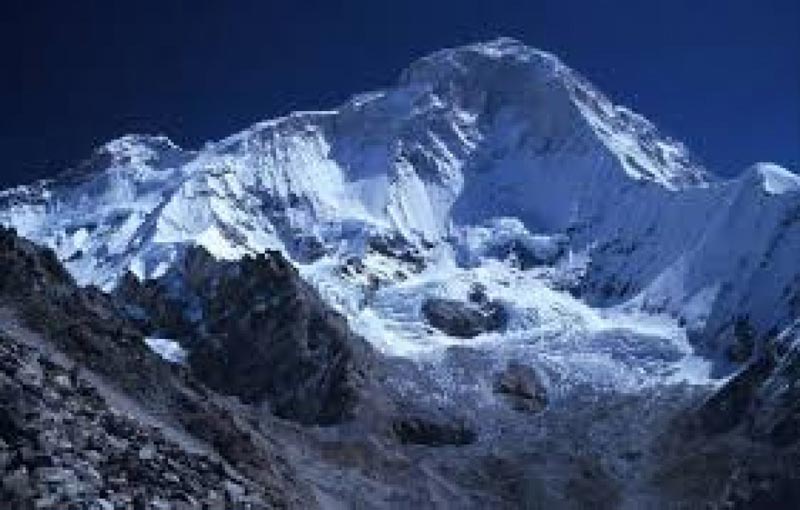
The great Himalayan trail Makalu Everest Trekking via Sherpani Col is definitely the most challenging. Actual Adventure Private Limited is organizing the GHT Makalu Everest trekking since a long time ago. We arrange all procedure to trek like staff management, safety management, trekking information management system (TIMS), ground handling management and every aspect of trekking in a very reasonable way. That is why we are able making standard among numerous trekking companies.
Actual Adventure Private Limited has made the standard itinerary of Damodar kund trekking. If this cannot accomplish the requirement of the visitor, we will provide itinerary as upon the requirement of them as well. We recommend Mar to May and Aug to Nov as the best trekking season in Nepal. We organize any type of trekking in these season.
We cross the highest passes in the Himalaya including the Sherpani Col, West Col and Amphu Labtsa, all above 5500 metres, enroute to the Everest region before crossing the Cho La to Gokyo Lakes. This trek is unsurpassed in terms of awe inspiring views of the most famous mountain region in the world.
The approach to Makalu Base Camp has been compared to the Yosemite Valley, on a grand scale! To reach some of the most amazing mountain scenery in the Himalaya, you first have to cross the challenging Kongma Danda covered in cloud forest draped in hanging orchids. There are few villages along the approach to the fifth highest peak in the world, Mt Makalu (8485m), the summit of which stands 3km above Base Camp. The mountaineering route over the glaciated Sherpani Col (6180m), West Col (6190m) and Amphu Labsta (5845m) to the Everest region involves the highest and hardest passes in the entire Himalaya, however the rewards of such an undertaking are more than worthwhile! During this trek there will be sections where the trail is very rugged or ill-defined, some trails have been trekked only once by a small party, and so the going will be tough. Space in some camp sites will also be very limited.International flight
Drinks, lunch and dinner in Kathmandu
Travel and health insurance that need to cover the helicopter rescue in case of emergency and medication.
Hot shower, drinks like coke, fanta, pot of hot water, beer, whisky, battery charge etc.
Nepal Visa fee
Tips to guides and porters
Upon arrival at Tribhuvan International Airport Kathmandu , we meet you greet you and assist you to reach in hotel as reservation.
Kathmandu guided tour and preparation for trekking pack up and final and last trekking gear buying. On Kathmandu tour, we visit historical and heritage sites of Kathmandu valley like old palaces squares, temples and stupas.
An early start for breakfast before transferring to the airport for the short 35 minute flight to Tumlingtar. We fly above mountain ranges before reaching Tumlingtar which sits on a wide plateau in the Arun Valley. We meet our transportation and drive to Num where we will make our first overnight camp.
The trail descends steeply from the western end of the Nun ridge through the cornfields of Lumbang. Below Lumbang the trail becomes very steep as it drops on slippery rocks through jungle to a suspension bridge over the Arun Kosi at 620m. From the bridge the trail climbs steeply to a primitive teashop at 820m, then through rice, corn and buckwheat fields. The landscape here is picturesque with tiny terraces planted with corn and barley. Finally we make a long climb to Seduwa.
Climbing along the ridge from Seduwa we pass the National Park Forest Nursery project and then climb gently northward through rice fields to Manigaon on the next ridge. There are several streams to cross that may or may not have bridges. From Manigaon the trail turns west and makes a gradual climb high above the Kasuwa Khola to a mani wall at 1890m. It’s an easy walk through terraced fields and forested areas to Hindrungma village and on to Ropesa, where we may find monks sitting beside the trail collecting donations for the small gompa nearby. Our route crosses meadows and several streams before reaching the Tashigaon School and eventually the village proper. This is the last permanent settlement in the valley. We make the long climb on a stone staircase to the corn fields at the top of town at 2100 metres where we make camp for the night.
This is a tough day, with an elevation gain of 1400m on a steep trail. Initially climbing over a ridge we pass by a herders’ hut and then the trail levels out and climbs to a shepherds’ hut called Chipla atop another ridge at 2520m. The route now becomes steeper with switchbacks through forest to Unshisha, a tiny meadow at 3180m. Once we gain the ridge we will continue a short distance through sparse forests before making a final descent to Khongma (3560m). There are no buildings and many of the tent sites are on the sloping hillside in this often muddy camp site.
This is a tough day, with an elevation gain of 1400m on a steep trail. Initially climbing over a ridge we pass by a herders’ hut and then the trail levels out and climbs to a shepherds’ hut called Chipla atop another ridge at 2520m. The route now becomes steeper with switchbacks through forest to Unshisha, a tiny meadow at 3180m. Once we gain the ridge we will continue a short distance through sparse forests before making a final descent to Khongma (3560m). There are no buildings and many of the tent sites are on the sloping hillside in this often muddy camp site.
Steep switchbacks take us to the top of the ridge at 3840m where there is a stone chorten adorned with prayer flags. This is a superb viewpoint with Makalu in the distance. Following along the ridge line through rhododendrons we ascend a stone staircase, and few false summits along the trail, before gaining a side ridge. This is Ghungru La (also known as Tutu La; 4050m). Descending to a lake we then climb steeply up a shallow gully to our major pass crossing - Shipton La. The pass was named when Eric Shipton and Sir Edmund Hillary used this route enroute to Dharan after their 1952 Everest reconnaissance. Descending from the La we pass two lakes at 4020m, and climb through large boulders to Keke La (4170m). On the other side of the pass the route enters a valley filled with rhododendron forests. In spring the valley floor is a carpet of brilliant wild flowers. We camp tonight at Dobato. The following day sees us descend steeply to the valley floor where we cross the Barun River before starting our gradual ascent to Yangla Kharka (3557m)
Steep switchbacks take us to the top of the ridge at 3840m where there is a stone chorten adorned with prayer flags. This is a superb viewpoint with Makalu in the distance. Following along the ridge line through rhododendrons we ascend a stone staircase, and few false summits along the trail, before gaining a side ridge. This is Ghungru La (also known as Tutu La; 4050m). Descending to a lake we then climb steeply up a shallow gully to our major pass crossing - Shipton La. The pass was named when Eric Shipton and Sir Edmund Hillary used this route enroute to Dharan after their 1952 Everest reconnaissance. Descending from the La we pass two lakes at 4020m, and climb through large boulders to Keke La (4170m). On the other side of the pass the route enters a valley filled with rhododendron forests. In spring the valley floor is a carpet of brilliant wild flowers. We camp tonight at Dobato. The following day sees us descend steeply to the valley floor where we cross the Barun River before starting our gradual ascent to Yangla Kharka (3557m).
Steep switchbacks take us to the top of the ridge at 3840m where there is a stone chorten adorned with prayer flags. This is a superb viewpoint with Makalu in the distance. Following along the ridge line through rhododendrons we ascend a stone staircase, and few false summits along the trail, before gaining a side ridge. This is Ghungru La (also known as Tutu La; 4050m). Descending to a lake we then climb steeply up a shallow gully to our major pass crossing - Shipton La. The pass was named when Eric Shipton and Sir Edmund Hillary used this route enroute to Dharan after their 1952 Everest reconnaissance. Descending from the La we pass two lakes at 4020m, and climb through large boulders to Keke La (4170m). On the other side of the pass the route enters a valley filled with rhododendron forests. In spring the valley floor is a carpet of brilliant wild flowers. We camp tonight at Dobato. The following day sees us descend steeply to the valley floor where we cross the Barun River before starting our gradual ascent to Yangla Kharka (3557m).
It is a short trekking day to Langmale Kharka to aid acclimatisation; we take in the impressive mountain scenery found in this area. Great rock walls tower above as we make our way through the enormous U-shaped valley. Snowy peaks are the stunning backdrop to this valley often referred to as the Yosemite of the Himalaya and it is a magnificent place to spend a well deserved rest day.
It is a short trekking day to Langmale Kharka to aid acclimatisation; we take in the impressive mountain scenery found in this area. Great rock walls tower above as we make our way through the enormous U-shaped valley. Snowy peaks are the stunning backdrop to this valley often referred to as the Yosemite of the Himalaya and it is a magnificent place to spend a well deserved rest day.
Trek to Makalu Base Camp (4870m), Rest/acclimatiazation Day.
Makalu Base Camp affords stunning views of its south face, with the south buttress of Makalu offering views of Baruntse (7220m), Everest and Lhotse. The Hillary and French base camps are far up the glacier, past Barun Pokhari, and these are now the traditional base camps used by climbing parties to Makalu. An optional walk from BC is a spectacular climb up grassy slopes to the top of the ridge. At the 5250m mark there is an outstanding view of Everest, Lhotse and Lhotse Shar as well as both the south-east and north ridges of Everest, along with the Kangshung Face and the South Col. Makalu looms above the ridge to the north.
The second half of trek to Swiss BC is tricky and involves boulder hopping as we follow the Barun Glacier directly beneath Makalu enormous west face. Swiss Base Camp is situated amongst the moraine in a sandy spot directly opposite the mighty West Pillar on Makalu. Very few campsites at this close to one of these 8000m giants. We have a full day set aside to rest and acclimatize and will aim to reach a vantage point above camp with a (weather permitting) great view of Everest and the fabled Kangshung Face.
The second half of trek to Swiss BC is tricky and involves boulder hopping as we follow the Barun Glacier directly beneath Makalu enormous west face. Swiss Base Camp is situated amongst the moraine in a sandy spot directly opposite the mighty West Pillar on Makalu. Very few campsites at this close to one of these 8000m giants. We have a full day set aside to rest and acclimatize and will aim to reach a vantage point above camp with a (weather permitting) great view of Everest and the fabled Kangshung Face.
We have allowed 2 days to position ourselves for the crossing of the Sherpani & West Cols. Depending on our group movement and progress we may need to be flexible on our approach. As we near the Sherpani Col base camp the trail is much less defined and with more boulder hopping, and now that we are climbing high cloud may obscure the trail. We camp high at the snout of the glacier at 5688m with the Sherpani Col 3 hours above us. If conditions are favourable and the group are moving at a good pace we may attempt to make the crossing of both Cols in a day, but in all likelihood we’ll be camping at Baruntse C1 on the West Col -6100m on the first night and descending the Col to the Hinku valley the next day. Although these are the most demanding days of our trek, we are deep in the Himalaya and the massive scale of the mountains around us are an awesome sight to behold. There will be sections of roped up travel and abseiling, and our Sherpa guides and mountaineering leader will manage the coming days as snow and weather conditions dictate.
We have allowed 2 days to position ourselves for the crossing of the Sherpani & West Cols. Depending on our group movement and progress we may need to be flexible on our approach. As we near the Sherpani Col base camp the trail is much less defined and with more boulder hopping, and now that we are climbing high cloud may obscure the trail. We camp high at the snout of the glacier at 5688m with the Sherpani Col 3 hours above us. If conditions are favourable and the group are moving at a good pace we may attempt to make the crossing of both Cols in a day, but in all likelihood we’ll be camping at Baruntse C1 on the West Col -6100m on the first night and descending the Col to the Hinku valley the next day. Although these are the most demanding days of our trek, we are deep in the Himalaya and the massive scale of the mountains around us are an awesome sight to behold. There will be sections of roped up travel and abseiling, and our Sherpa guides and mountaineering leader will manage the coming days as snow and weather conditions dictate.
After our crossings are completed we descend into the Honku valley nearby five large glacial lakes which sprawl out before us. They are known as Panch Pokhari (five lakes). The Amphu Labsta pass is situated immediately at the head of the valley to our right and is basically the low point on the ridge between the Honku and the Imja valleys. For this day or so we are in the Honku. A new vista of peaks span out before us including Ama Dablam to the distant west, and many unnamed peaks. Amphu Labsta Base Camp is set close to the rocks that lead up to the pass. On these stages we ask that members be flexible and co-operative. Camps will be set where conditions allow, and your leader will keep you advised as to each days plan.
After our crossings are completed we descend into the Honku valley nearby five large glacial lakes which sprawl out before us. They are known as Panch Pokhari (five lakes). The Amphu Labsta pass is situated immediately at the head of the valley to our right and is basically the low point on the ridge between the Honku and the Imja valleys. For this day or so we are in the Honku. A new vista of peaks span out before us including Ama Dablam to the distant west, and many unnamed peaks. Amphu Labsta Base Camp is set close to the rocks that lead up to the pass. On these stages we ask that members be flexible and co-operative. Camps will be set where conditions allow, and your leader will keep you advised as to each days plan.
After our crossings are completed we descend into the Honku valley nearby five large glacial lakes which sprawl out before us. They are known as Panch Pokhari (five lakes). The Amphu Labsta pass is situated immediately at the head of the valley to our right and is basically the low point on the ridge between the Honku and the Imja valleys. For this day or so we are in the Honku. A new vista of peaks span out before us including Ama Dablam to the distant west, and many unnamed peaks. Amphu Labsta Base Camp is set close to the rocks that lead up to the pass. On these stages we ask that members be flexible and co-operative. Camps will be set where conditions allow, and your leader will keep you advised as to each days plan.
An alpine start for our pass crossing. Ferrying across all our loads together with all party members, crew, porters and members takes time. The approach to the pass from the Honku is deceptive. Facing east and southward there is much more sun and little snow, just a collection of rocks that gradually lead up to the gap we travel through. On the north facing side we find steep slopes of snow that we must take care to descend by fixed ropes to the snow basins below and subsequent moraine and alpine valley beyond. The views from this 5845m pass crossing to the peaks of Khumbu are unmatched. Any spare moment whilst we are climbing and descending will allow us to appreciate the spectacle of the peaks of the region.
Day 23 brings us to Dingboche and our comfortable private permanent campsite. Over the past week we have made crossings of some of the most challenging terrain found in the Himalaya. From our camp we have excellent views of Nuptse, Lhotse, Chukung Peak and Imja Tse (6189m) are had from both in the valley or from the ridge above the camp. Massive glaciers drape beneath cliffs that soar up to 3,500 metres in this dramatic valley. The following day we proceed to Dzongla, another spectacularly situated camp, on our way to our next pass, the Cho La.
brings us to Dingboche and our comfortable private permanent campsite. Over the past week we have made crossings of some of the most challenging terrain found in the Himalaya. From our camp we have excellent views of Nuptse, Lhotse, Chukung Peak and Imja Tse (6189m) are had from both in the valley or from the ridge above the camp. Massive glaciers drape beneath cliffs that soar up to 3,500 metres in this dramatic valley. The following day we proceed to Dzongla, another spectacularly situated camp, on our way to our next pass, the Cho La.
The views today are magnificent as we leave the Everest watershed and enter that of Cho Oyu, the sixth highest mountain in the world. The crossing involves a steep scramble up rock boulders and then a walk across the gently ascending, snow-covered glacier that caps the pass, the views of the route ahead, and of the glacier itself, is breathtaking. We descend steep boulder strewn slopes to the Gokyo valley below. This is a valley of turquoise lakes and great glaciers. For the first part of the descent there are discernible paths that zigzag down the mountainside – slippery in snow! The ground then levels out and the path all but disappears as we hop across a field of boulders. Finally we climb a gentle slope to the top, from where it’s all downhill, following a narrow river valley all the way to its base at Dragnag, a small Sherpa settlement nestled beneath great rock walls, just a stone’s throw from the Ngozumba Glacier. Continuing on we reach Gokyo in the late afternoon.
The steady and unrelenting ascent of Gokyo Ri will take around two hours. You will be elated when you reach the summit with its spectacular view. Probably the most comprehensive view of 8,000 metre peaks in Nepal, many people consider it to be Nepal’s best. Surrounding us are Cho Oyu (8153m), (a mountain that defeated a British Expedition of climbers, including Hillary, in their lead-up to their successful assault of Everest), Gyangchung Kang (7922m), Lhotse (8501m), Makalu (8475m), Cholatse (6440m), Taweche (6542m), Kantega (6685m), Thamserku (6808m), Lobuche (6145m) and Mt Everest (8848m). Hundreds of other unnamed peaks fill the scene, whilst below us the Ngozumba Glacier, the largest in Nepal, stretches through the valley. The striking colour of the lakes below completes the picture. The only way to get a better view of the entire Everest region would be to climb an 8,000 metre peak! Although further from Everest than Kala Pattar, the traditional viewing point, here we see more of the mountain and enjoy a more relaxed environment to view the peak.
We trek around Gokyo Lake to set up our wilderness camp below the Renjo La pass ready for our crossing tomorrow.
The crossing of the Renjo La Pass will be exciting and relatively straight forward. The landscape is progressively that of the Tibetan Valleys beyond the border. There is a chance we will meet Tibetan Traders descending from the Nangpa La pass that leads through the Himalayas from Tibet with their caravans of woolly yaks laden with goods. Overnight camp at Taranga.
We turn south and down valley towards Lukla for our return to Kathmandu. There are Sherpa villages to be explored as we descend the gorge. We will spend the night at the pretty village of Thame with its spectacular monastery. We will bid farewell to our Full GHT & Everest Rolwaling Traverse groups.
We are now trekking towards the busy main trail through the Khumbu Valley to Namche. On arrival in Namche there will no doubt be earnest celebration of a challenging but satisfying expedition, the likes of which has been enjoyed by very few people. Sagarmatha National Park Headquarters just above our Sherpa hotel offers a very interesting display of photographs, memorabilia and information on the park, and the hill above is a wonderful vantage point for the spectacular view up the Imja Khola Valley towards Everest. The change from the narrow lowland valleys to the broad glacial ones is immediately obvious. The steep-sided glacial valley before us gradually winds towards the base of Everest, broken only by the moraines left by retreating glaciers. Its more gradual rate of climb is a blessing for those trekking higher. Towering to over 4000 metres above the valley floor, spectacular peaks seem to engulf us. Around us are Taweche (6542m), Thamserku (6808m), Kantega (6685m), Ama Dablam (6856m), Nuptse (7896m) and Lhotse (8511m). The greatest of all, Mt Everest (8848m), rises at the head of the valley. The Sherpa Cultural Centre next to our hotel has an interesting collection of mountaineering items and photographs.
Leaving Namche we continue down through the forest to the valley floor to follow the Dudh Kosi downhill and out of the national park to our fixed camp at the small settlement of Monjo. The following day we pass through a variety of settlements and forests before a gentle climb to Lukla. We savour our final mountain sunsets of the trek as we complete this challenging and exhilarating journey. Our last evening of the trek is a good time to have a small party for all the team, especially the porters who will return to their villages from here. There is usually lots of music, dancing and singing and if we are lucky, one of the superb cakes that our Nepali chefs are renowned for.
Leaving Namche we continue down through the forest to the valley floor to follow the Dudh Kosi downhill and out of the national park to our fixed camp at the small settlement of Monjo. The following day we pass through a variety of settlements and forests before a gentle climb to Lukla. We savour our final mountain sunsets of the trek as we complete this challenging and exhilarating journey. Our last evening of the trek is a good time to have a small party for all the team, especially the porters who will return to their villages from here. There is usually lots of music, dancing and singing and if we are lucky, one of the superb cakes that our Nepali chefs are renowned for.
This morning we fly to Kathmandu, a thrilling flight over forests, fields and villages, with the Himalaya in the background. On arrival, we transfer to the hotel. The rest of the day is at leisure.
After breakfast arrangements we assist you to transfer TIA for the departure procedure.
Actual Adventure Pvt. Ltd comprises of a group of experienced, proactive and enthusiastic persons who are highly motivated to promote and bring forth to the world the unparallel natural wonders of Nepal in a sustainable manner. With the inception of our company in 2009 Read More...
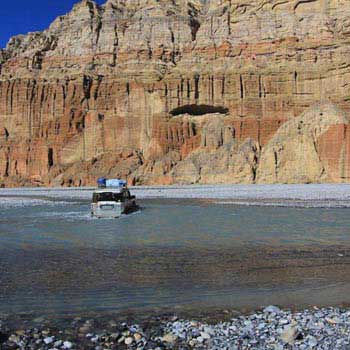 14D/13N
14D/13N
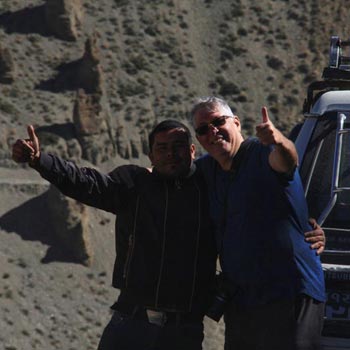 10D/9N
10D/9N
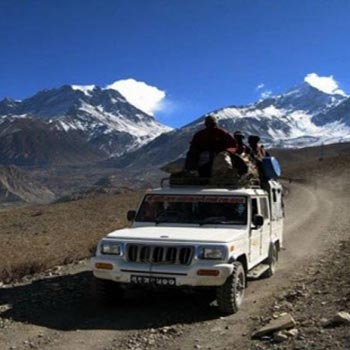 14D/13N
14D/13N
Jomsom Muktinath with Chitwan Jeep Safar..
Kathmandu - Pokhara - Chitwan - Kathamdnu
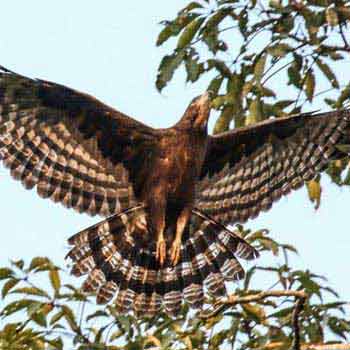 15D/14N
15D/14N
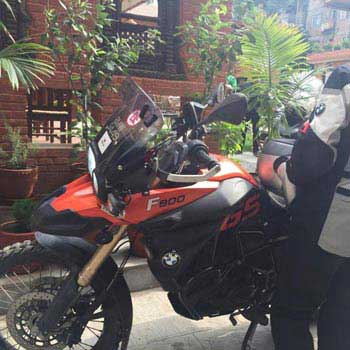 1D/0N
1D/0N
 5D/4N
5D/4N
 22D/21N
22D/21N
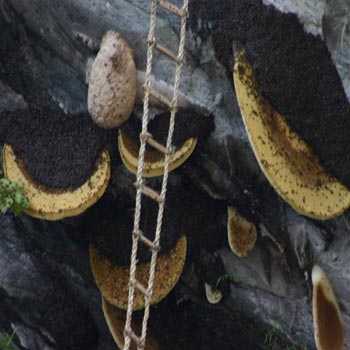 3D/2N
3D/2N
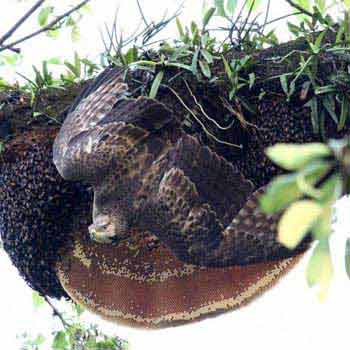 8D/7N
8D/7N
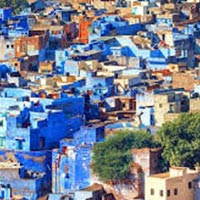 34D/33N
34D/33N
Golden Triangle With Beautiful Heritage ..
New Delhi - Varanasi - Khajuraho - Agra - Jaipur - Pushkar - Ranakpur - Jodhpur - J..
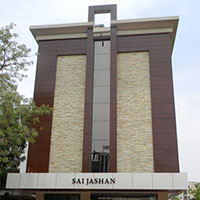 34D/33N
34D/33N
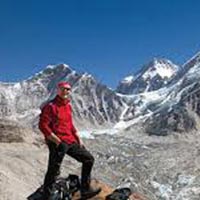 34D/33N
34D/33N
The Grand KK Mountain Traverse Trek Pack..
Rawalpindi - Islamabad - Chilas - Skardu
 34D/33N
34D/33N
 34D/33N
34D/33N
Chennai - Trichy - Madurai - Kanyakumari - Kovalam - Periyar - Ooty - Mysore - Koch..
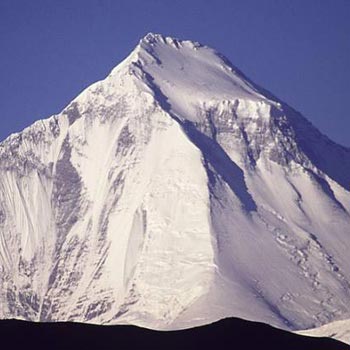 34D/33N
34D/33N
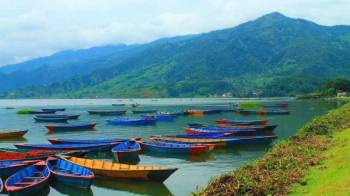 12D/11N
12D/11N
11 Nights - 12 Days Nepal Tour From Gora..
Prayagraj - Gorakhpur - Varanasi - Ayodhya - Kathmandu - Pokhara - Chitwan - janakpur
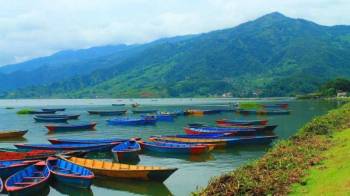 12D/11N
12D/11N
11 Nights - 12 Days Nepal Tour From Gora..
Prayagraj - Gorakhpur - Varanasi - Ayodhya - Kathmandu - Pokhara - Chitwan - janakpur
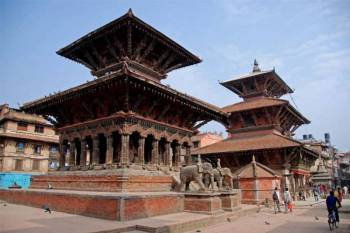 12D/11N
12D/11N
11 Nights - 12 Days Nepal Tour Package - 2
Prayagraj - Gorakhpur - Varanasi - Ayodhya - Kathmandu - Pokhara - Chitwan - janakpur
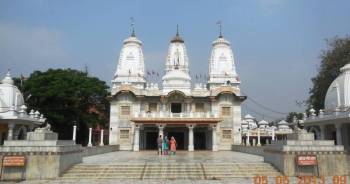 12D/11N
12D/11N
Prayagraj - Gorakhpur - Varanasi - Ayodhya - Kathmandu - Pokhara - Chitwan - janakpur
 8D/7N
8D/7N
8D Kathmandu - Chitwan - Pokhara - Lumbi..
Kathmandu - Pokhara - Lumbini - Chitwan - janakpur
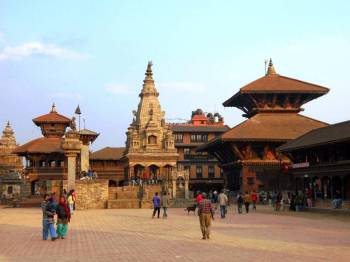 3D/2N
3D/2N
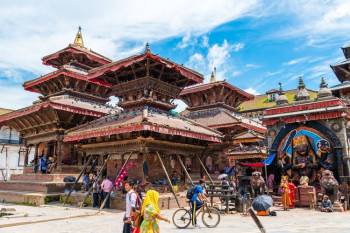 6D/5N
6D/5N
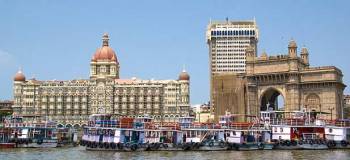 18D/17N
18D/17N
Best of North & West India with Nepal Tour
Mumbai - Kathmandu - New Delhi - Jaipur - Fatehpur Sikri - Agra - Jhansi - Varanasi..